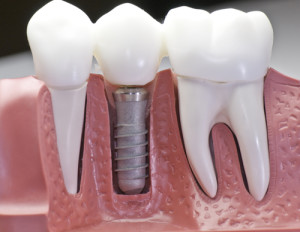 It is quite common for a kid to get their teeth knocked out at the playground. The tooth can be replanted by a dentist if attended immediately. Otherwise, an implant needs to be used so as to replace the lost tooth. Dental implants are gaining wide acceptance these days as it functions and looks the same as any other natural tooth and is a great alternative to that of a bulky, unnatural and uncomfortable denture. However, certain factors are to be considered by parents before electing for dental implants.
It is quite common for a kid to get their teeth knocked out at the playground. The tooth can be replanted by a dentist if attended immediately. Otherwise, an implant needs to be used so as to replace the lost tooth. Dental implants are gaining wide acceptance these days as it functions and looks the same as any other natural tooth and is a great alternative to that of a bulky, unnatural and uncomfortable denture. However, certain factors are to be considered by parents before electing for dental implants.
- A child’s jawbone is still in its developing stage. Implants may compromise the jawbone’s growth or/and teeth from developing in their normal positions. Periodontal ligaments allow the living teeth to enjoy flexibility, while a fixed position is occupied by an implant inside the jawbone. Thus, it won’t be accommodating a surrounding teeth’s growth.
- The implants (made of titanium) are very steady, particularly when it gets integrated into the bone. Such stability ensures no movement, drifting, tipping and migrating that will result in causing a number of problems in future.
- Boys need to be at least 17 years of age before getting dental implants. The number stands at 15 years for girls. Jawbone development needs to be evaluated by the dentist before electing to start the procedure.
- Waiting for too long can also pose a number of serious problems. That includes loss of bone surrounding the lost tooth and shifting of the others into the hole.
- Missing teeth falls in the same category as that of zits and braces. Gaps become noticeable particularly when the bone surrounding the missing tooth starts shrinking. Dental implants are not at all the last resort as a denture can be constructed by a dentist in order to fill-in the gap temporarily. Implants can then be placed only after the jawbone gets fully grown.
- Dental implants can prove to be quite beneficial at an earlier stage if a child is a victim of hypodontia, oligodontia or anodontia (genetic disorders that slows down the growth of permanent teeth in children).
- Same amount of maintenance and care is required by dental implants as that of living teeth. One needs to make sure that their child is educated enough in maintaining the implants in their best possible conditions.
Author Bio: Tony Rolland is working with Santa Rosa dentist Valeria Lawrence DDS and writes about alternative medicine, health and dentistry.
